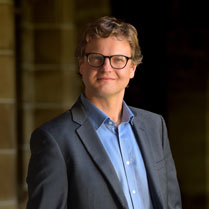These are the notes for the last of four webinars on "Engaging students in the online environment", Wednesday, 10 February at 11 am AEDT Sydney time (Tuesday, 5 pm MST in Edmonton). This is part of the Microlearning Series at Maskwacis Cultural College in Canada, curated by Manisha Khetarpal. Please register for the webinar and send your suggestions.
How do we get students to engage beyond the class?
Education is supposed to be a social and cultural experience, not just learning stuff. With students online, how do we get them to engage outside formal coursework? Athabasca celebrated the end of year with their Athabasca University Cozy Mountain Lodge and the Australian National University is holding a hybrid multi-location virtual/real& Grand Graduation: Class of 2020. Join me and be ready to give your examples of informal student interaction (presentation Powerpoint and PDF).
Athabasca University Cozy Mountain Lodge
I had spent three years studying at AU (and previously designed one of their courses), but have never actually been to the campus or seen a student face to face. But as an online university, AU have put considerable effort to providing a social experience for remote students. Thus is well in advance of the efforts made this year by conventional universities suddenly forced online by COVID-19.
Australian National University Grand Graduation
The Australian National University (ANU) is holding a hybrid multi-location virtual/real Grand Graduation: Class of 2020. on 8 February. This will be streamed from the regular graduation location, ANU's Llewellyn Hall in Canberra. There are satellite locations in Sydney, Melbourne, Perth, Brisbane, Shanghai and Beijing.
Students who can't make it to one of these venues have been invited to celebrate with a Virtual Graduation Party Pack. Like the Athabasca University Cozy Mountain this has taken on elements of the surreal, if not just silly, with ANU students given a template for a cardboard "DIY Mortarboard" and "Cake Toppers".
How Do We Engage Students Day to Day to Stop Our Universities Going Broke?
 |
| Gwilym Croucher, University of Melbourne |
 James Guthrie,
James Guthrie,Macquarie University
An extreme form of learning beyond the usual classroom is Transnational Education (TNE). Croucher, Elliott, Locke and Yencken (2020) define two types of: offshore campus-based and online. They are are cautiously optimistic about the future of Australian TNE, both in existing markets, particularly China, and new ones, such as Sri Lanka and Indonesia.
However, the authors don't mention a third form of TNE, a blended model using an onshore campus in Australia, plus online study in the student's nation. I suggest this could prove an attractive option for students and is, in effect, what many international students have been forced to do, due to COVID-19. It is also cost-effective and logistically easier for universities, as they do not have to maintain overseas campuses. This also could be applied more generally to on-shore vocational education.
Guthrie et al. (2021) have warned that ten Australian universities are at a "high risk of financial default" due to dependence on revenue from international students who can't get to campus because of COVID-19 restrictions. Their "probable" scenario is for onshore international students dropping 33.3% in 2021 due to COVID-19 and 60% by 2030 due to competition from China. So Australia's universities, I suggest, need to improve the quality of student engagement to remain competitive.
Build an Engaging Online Conference
 | |
|
Due to COVID-19 many academic conferences were moved online in 2020. This was a temporary expedient measure. However, it did highlight some advantages as well as disadvantages for the format. People who could not previously attend a conference, due to cost, accessibility or family commitments, could now do so. Normally I would prepare one paper for an international conference, help with reviewing for it and attend. But busy with my own online teaching, and helping others, I had assumed I would write no papers in 2020. Instead I co-authored three papers, helped present two and attended more conferences than I would normally. This was because I could do so from the comfort of my home office. Admittedly, watching a video conference presentation was not the same as being in some exotic city. There is still work needed on how to replicate the informal and accidental conversations which happen at conferences. Also the differing aims of delegates and sponsors need further consideration. In may ways the same issues apply to students as they do to academics and researcher at conferences: how can we get real engagement from participants?
References
Gwilym Croucher, Kristine Elliott, William Locke and Edward Yencken (0 Mar 2020) Australia’s higher education delivery offshore and online – trends, barriers and opportunities, Melbourne Centre for the Study of Higher Education. URL https://melbourne-cshe.unimelb.edu.au/__data/assets/pdf_file/0009/3568275/Australias-higher-education-delivery-offshore-and-online.pdf
James Guthrie, Martina K Linnenluecke, Ann Martin-Sardesai, Yun Shen, and Tom Smith (January 2021). On the resilience of Australian public universities: Why our institutions may fail unless Vice-Chancellors rethink broken business models, Macquarie University Business School working paper. Download link at: https://campusmorningmail.com.au/news/the-three-threats-to-australian-universities-and-the-ten-most-exposed/


No comments:
Post a Comment